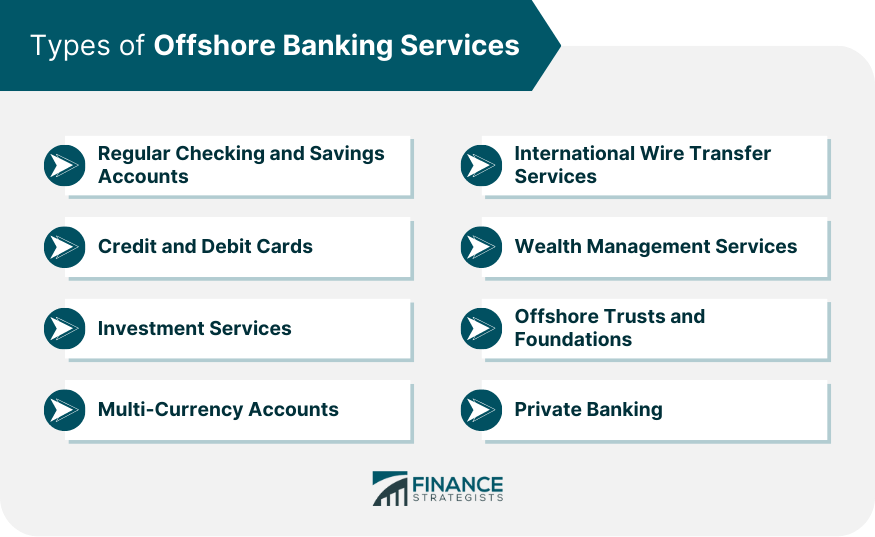Comprehending the Lawful Effects of Offshore Company Development

Legal Framework for Offshore Business
When establishing an offshore business, comprehending the lawful structure regulating its formation and operation is essential for conformity and danger monitoring. Offshore business run under specific laws and regulations that vary from those of onshore entities. The lawful structure for offshore companies typically includes stipulations for firm registration, investor needs, director duties, and tax commitments.
Company registration involves sending the needed documentation to the appropriate governing authorities in the picked territory. This procedure frequently calls for detailed info regarding the company's framework, shareholders, and intended activities. Furthermore, offshore business have to abide by certain shareholder needs, such as maintaining a register of investors and keeping this information approximately day.
Supervisors of overseas business have fiduciary tasks to act in the ideal interests of the business and its shareholders. By adhering to the legal framework controling overseas companies, services can operate with confidence while minimizing lawful risks.


Tax Ramifications and Rules
When taking into consideration the establishment and procedure of an overseas business,Understanding the tax implications and policies is extremely important. Tax obligations play an important function in the decision-making process of whether to establish up an overseas entity. Offshore companies are usually subject to beneficial tax obligation regimens, supplying decreased or zero tax obligation prices on foreign-earned income. Nevertheless, it is necessary to navigate these tax advantages carefully to ensure conformity with both the regulations of the overseas jurisdiction and the home nation.
Tax obligation guidelines for overseas firms vary considerably throughout territories, and it is critical to seek skilled suggestions to recognize the details demands and commitments. Extensive expertise of tax regulations and guidelines, as well as appropriate tax planning, are necessary to make certain the certified and successful operation of an offshore business.
Compliance Needs and Coverage
Guaranteeing conformity with regulative requirements and preserving exact reporting are vital aspects of managing an offshore company effectively and transparently. Offshore business should abide by the regulations and guidelines of both the territory in which they are incorporated and any various other appropriate jurisdictions where they carry out organization. Conformity needs typically include filing yearly returns, financial declarations, and tax obligation records with the suitable authorities. Failing to meet these commitments can lead to fines, penalties, or perhaps the abrogation of the company's enrollment.
Along with regulative conformity, offshore companies are frequently subject to reporting demands to ensure transparency and prevent unlawful activities such as money laundering or tax evasion. Coverage responsibilities may involve disclosing details concerning the business's ownership structure, financial tasks, and beneficiaries. This details might require to be shown to regulative bodies, tax obligation authorities, or other governmental agencies, depending upon the territory.
Preserving accurate and detailed documents is critical for demonstrating compliance and responding to any kind of queries or audits efficiently. Offshore firms ought to implement robust coverage devices and internal controls to ensure that they satisfy all legal demands and operate with integrity.
Property Defense and Privacy Regulations
In Full Article the world of offshore firm development, an essential factor to consider is the interaction in between asset security methods and privacy regulations. Offshore territories often offer enhanced property protection devices that protect assets from potential threats such as suits, creditors, or political instability in the home nation. By structuring assets within an offshore business, people can secure their riches and diversify their holdings across different legal frameworks. Personal privacy legislations in offshore jurisdictions add to preserving discretion and anonymity for business owners. These laws limit the disclosure of sensitive information, making it challenging for outside events to access information about the business's operations or possession framework. This level of personal privacy can be useful for people looking for to protect their possessions from public analysis or rivals. Nonetheless, it is essential for individuals to navigate these regulations morally and transparently, making certain conformity with both offshore laws and the lawful requirements of their home nation. Ultimately, comprehending the detailed partnership in between possession security approaches and personal privacy legislations is vital when thinking about overseas business development.
Risks and Challenges to Take into consideration
When venturing into overseas firm development, prudent consideration of prospective threats and obstacles is important for informed decision-making and tactical planning. Furthermore, political instability or modifications in overseas territories can position a danger to the continuity of procedures and the protection of properties held by the offshore firm.
Difficulties may also emerge concerning the complexity of overseas company structures and the need for professional lawful and economic suggestions to navigate the intricate my website governing structures of different territories (offshore company formation). Maintaining conformity with varying worldwide laws and guidelines, along with prospective language obstacles and social differences, can better complicate the overseas business formation procedure. It is essential to be familiar with these dangers and challenges prior to proceeding with overseas company formation to alleviate look at here now potential mistakes and make certain a legitimately sound and smooth facility
Final Thought
To conclude, overseas company formation involves browsing complex lawful structures, tax implications, conformity needs, and personal privacy legislations. Recognizing these elements is vital for minimizing risks and obstacles connected with offshore organization operations. It is essential for individuals and services considering overseas business development to seek specialist advice to ensure compliance with regulations and to protect their possessions successfully.
The legal structure for overseas companies typically consists of provisions for business enrollment, shareholder demands, supervisor responsibilities, and tax obligation commitments.
Supervisors of overseas business have fiduciary duties to act in the finest rate of interests of the firm and its shareholders. By adhering to the lawful framework regulating offshore companies, companies can operate with self-confidence while reducing lawful dangers.
In addition, political instability or adjustments in offshore jurisdictions can pose a threat to the continuity of operations and the defense of assets held by the overseas business. - offshore company formation
In verdict, overseas business formation includes browsing complex legal structures, tax obligation effects, conformity needs, and personal privacy legislations.